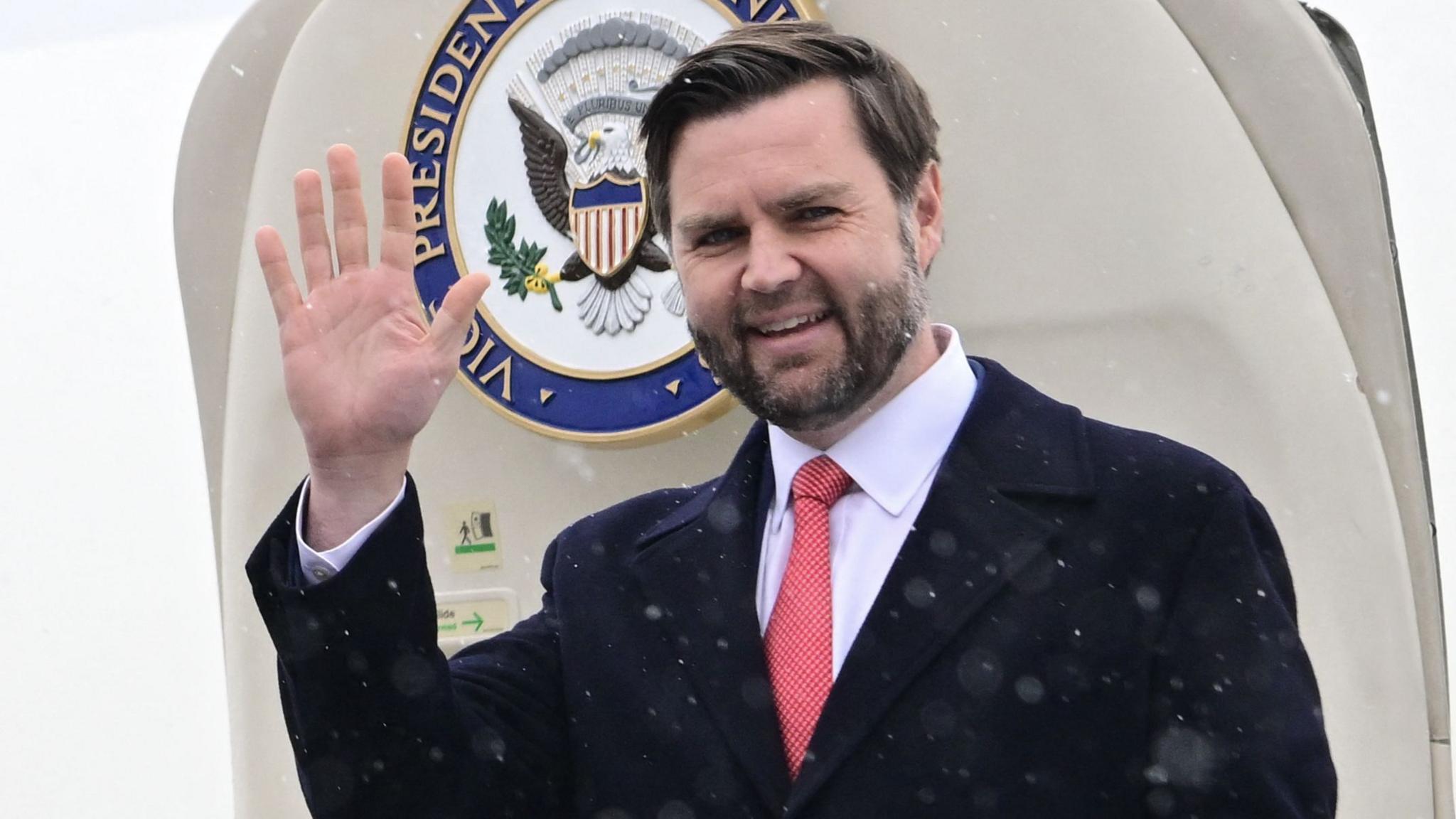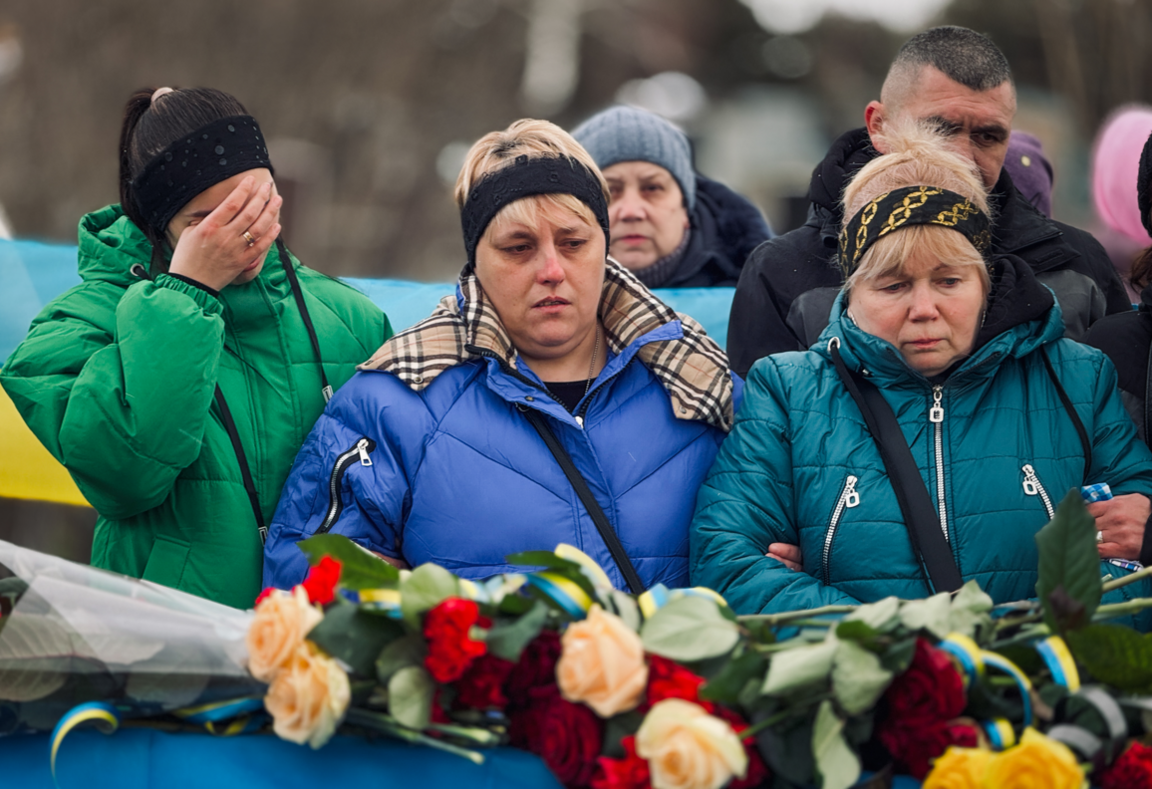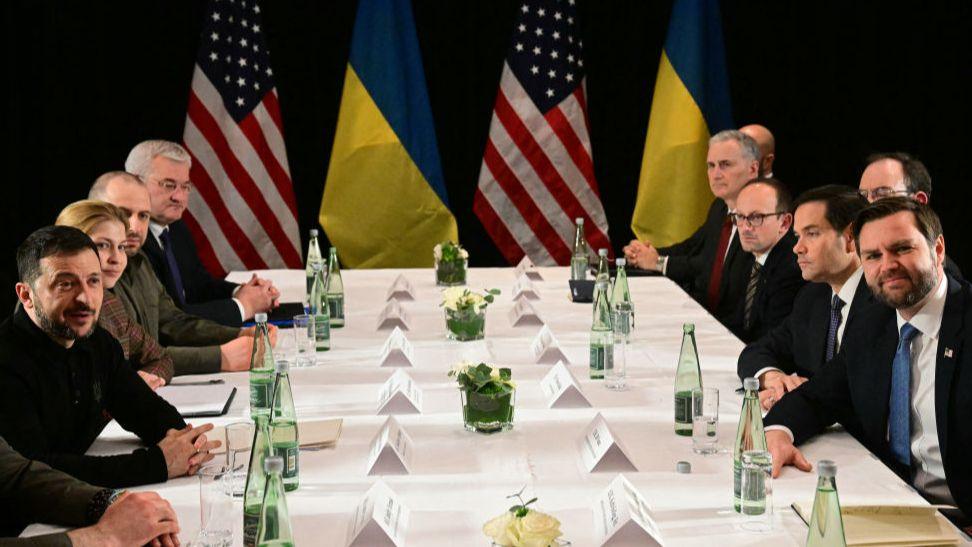JD Vance attacks Europe over free speech and migration
Watch key moments from Vance's speech in Munich
- Published
US Vice-President JD Vance has launched a scalding attack on European democracies, saying the greatest threat facing the continent was not from Russia and China, but "from within".
It had been expected that Vance would use his speech at the Munich Security Conference to address possible talks to end the war in Ukraine.
Instead, he spent the majority accusing European governments - including the UK's - of retreating from their values, and ignoring voter concerns on migration and free speech.
The address was met by silence in the hall, and later denounced by several politicians at the conference. German Defence Minister Boris Pistorius said it was "not acceptable".
Vance repeated the Trump administration's line that Europe must "step up in a big way to provide for its own defence".
The Ukraine war was mentioned, with Vance saying he hoped a "reasonable settlement" could be reached, after US President Donald Trump's surprise announcement earlier this week that he and Russia's Vladimir Putin had agreed to begin peace talks.
But Vance's address otherwise focused on culture-war issues and key themes of Trump's campaign for the US presidency - a departure from the usual security and defence discussions at the annual conference.
He alleged European Union "commissars" were suppressing free speech, blamed the continent for mass migration, and accused its leaders of retreating from "some of its most fundamental values".
The EU's foreign policy chief, Kaja Kallas, characterised Vance as "trying to pick a fight" with Europe, home to some of the US's closest allies.
Michael McFaul, the former US ambassador to Russia, told Politico Vance's remarks were "insulting" and "just empirically not true".
Vance used his 20-minute speech to single out several European nations, including the UK.
He raised a legal case in which an army veteran who silently prayed outside an abortion clinic was convicted of breaching an 150-metre safe zone around the centre.
The safe zone, introduced in October 2022, bans activity in favour or against abortion services, including protests, harassment and vigils.
But Vance argued that the "basic liberties of religious Britons, in particular" were under threat.
Vance went on to criticise the use of laws enforcing buffer zones, saying that free speech was in retreat and alleging that the Scottish government had warned people against private prayer within their own homes.
In response, the Scottish government said Vance's claim was "incorrect" and the law was "carefully drafted to capture only intentional or reckless behaviour close to a small number of premises providing abortion services".
Nine days before a tense national election in Germany, he touched on a heated debate in the country around mainstream political parties maintaining a so-called "firewall" of non-cooperation with the far-right Alternative for Germany (AfD) party.
In the decades since democracy was restored in Germany after the defeat of the Nazis, there has been a consensus among its main political parties not to work with far-right parties.
"Democracy rests on the sacred principle that the voice of the people matters," Vance said. "There's no room for firewalls. You either uphold the principle or you don't."
The AfD's candidate for chancellor, Alice Weidel, later shared parts of his speech on X, praising it as "excellent". The two reportedly met afterwards, according to German public broadcaster ZDF.
In his own speech, Pistorius directly addressed Vance, saying: "Democracy was called into question by the US vice-president for the whole of Europe.
"He speaks of the annihilation of democracy," Pistorius continued. "And if I have understood him correctly, he is comparing conditions in parts of Europe with those in authoritarian regimes... that is not acceptable."
Vance also made reference to the presidential election in Romania, which was annulled in December after declassified documents suggested it had been targeted by Russian state interference.
Vance told the conference: "If your democracy can be destroyed with a few $100,000 of digital advertising from a foreign country, then it wasn't very strong to begin with."
Romanian Prime Minister Marcel Ciolacu said his country remains "a defender of the democratic values that Europe shares with the USA".
"All RO [Romanian] authorities are committed to organising free and fair elections by empowering citizens and guaranteeing the freedom to vote," he wrote on X.
Vance later met with Ukrainian President Volodymyr Zelensky on the sidelines of the conference, which has otherwise mainly focussed on Russia's full-scale invasion.
Zelensky said during the meeting that more work was needed on planning to end the fighting, while Vance said the pair shared a "fruitful" conversation.
Trump had said US, Russian and Ukrainian officials would meet in Munich, but Moscow has said it is not sending a delegation to the summit.
- Published13 February

- Published14 February

